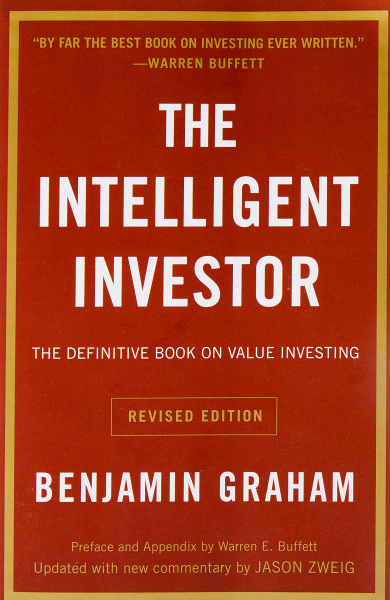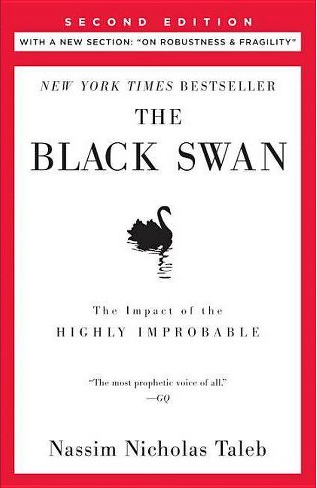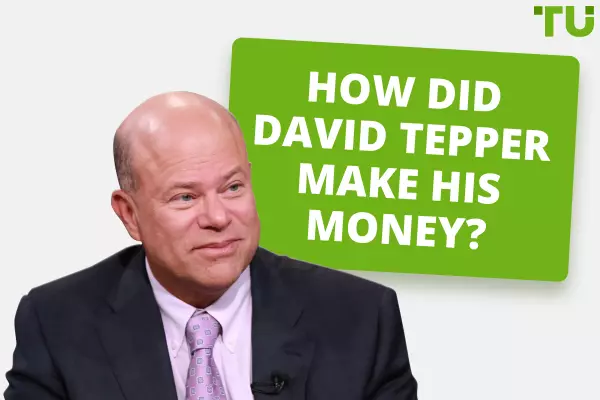Top 9 Best investment books: What should a novice investor read?
An introduction to trading and investing begins with freely available sources, such as books and the internet. The internet is convenient because there are thousands of articles on any topic, webinars, and thematic forums. But books also have advantages. A book is a unique author's experience that deeply reveals the essence of each topic:
A book can be read when the internet is not available.
You can listen to a book in the audio format while on the road or when your eyes are tired.
The book takes time, but you will know and understand the top more deeply. The more competitive advantages you have in comparison with other traders, the more successful you will become.
The Traders Union has prepared for you a small selection of investment books that are considered the best in their focus area in the hope that you find something useful and exciting among them.
Start investing right now with Interactive BrokersGlossary:
Investments - are the contribution of funds by individuals or legal entities in various assets to make a profit. You may invest in bank deposits, stocks, currencies, precious metals, ETFs, and other assets to reap a profit.
An investor is an individual who contributes money or other capital with the expectation that he will receive a profit or that the asset will increase in value in the future. An asset can be anything, including bonds, promissory notes, mutual funds, stocks and other securities, gold, silver, exchange-traded funds (ETFs), real estate, and so on.
Trading deposit – may consist of funds deposited by a trader or investor to a trading account with a broker for trading.
Forex - is an international financial market where currencies are exchanged. Forex trading involves the central banks of different countries, companies doing international business, commercial banks, and private traders.
ETFs (Exchange-Traded Funds) – Are any ETFs that are based on the selected index and completely duplicate its structure. The fund can duplicate the asset structure of commodity market indices, stock and bond markets, as well as precious metals and foreign currencies.
A share is a security. It confirms that you have become one of the co-owners of the company, and are now entitled to some part of its income. Profit is accrued in the form of dividends on shares. The more shares you buy, the higher the dividend amount will be.
A bond - is a security that certifies a debt obligation of one party to another. The issuer borrows funds and shall repay them within a specified time and at a certain interest rate.
1. Benjamin Graham | The intelligent investor
Focus area: Fundamental analysis in stock trading.
Author: Benjamin Graham is one of the most famous US investors in the first half of the last century.
The book deals with the rules of investing in securities. The author talks about what to look for when choosing stocks. For example, ignore market sentiment and focus only on the company’s actual performance. Or look for companies with a difference between the market price of shares and their intrinsic value. The book analyzes real and simulated situations beginning with a search for promising investment instruments to determine the rate of inflation and finding solutions to reduce its impact on your trading strategy. The strength of the book is that it does not teach technical details, but rather a way of thinking — rationally and with strict control of your emotions.

Benjamin Graham | The Intelligent Investor
Three ideas from the book are:
-
A smart investor is a realist who buys stocks from pessimists and sells them to optimists.
-
Do not make impulse trades and do not be influenced by the crowd.
-
If you're trying to raise capital quickly, you will end up with a loss.
Interesting fact: Warren Buffett calls this book his first textbook.
2. Robert Kiyosaki | Rich Dad Poor Dad
Focus area: Psychology, internal motivation, and application of true grit and self-confidence.
Author: Robert Kiyosaki is an American entrepreneur, investor, and author of books on self-development and the psychology of personality. Recently, he has been conducting educational workshops and developing motivational courses in the form of seminars, audio podcasts, and board games.
Published in 1997, the book remains relevant to this day and is one of the best books on investing. It explores two points of view: What can a rich dad and a poor dad teach a child? What is the role of education in the future of a child? The book shows that we take many things too literally and assume they are stereotypical. In childhood, a person must receive grounding that will help him make decisions on his own, and the financial condition of the parents does not play a role here. A person's perception of his life plays a key role: poor dad will not become rich precisely because of his thinking. Because he is poor — not financially, but morally and spiritually.

Robert Kiyosaki | Rich Dad Poor Dad
Three ideas from the book are:
-
At first, the fear of being left without anything pushes us to take action. Then greed and the desire for pleasure motivate us to continue.
-
Our wishes materialize. While the poor are thinking about how to save money, the rich are thinking about how to earn money.
-
The poor live in memories of beautiful days gone by, the rich plan for a beautiful future.
Interesting fact: Robert Kiyosaki is the author of the board game CASHFLOW. The game is a life simulator, where the goal of each player is to break out of the routine as quickly as possible and make their cherished dream come true. Each player has different starting opportunities, and the essence of the game is to show that to achieve the goal, it does not matter how much money you have at the start and what you are.
3. Nassim Taleb | Black Swan. The Impact of the Highly Improbable
Focus area: trading philosophy, risk management
Author: Nassim Taleb is a risk manager, former trader, writer, and author of best-selling books on economics. He is known for his research on the impact of unpredictable and random events on the global economy.
In the book, the author examines the impact on society of "black swans", which he describes as relatively rare, unpredictable events whose occurrence cannot be influenced. This factor of unpredictability negates technical and fundamental analysis, but it can be used to your advantage. The book provides examples from history and their impact on the economy with a view of everyday life. Thanks to lively language, humor, elements of artistry, the book lasted 36 weeks on the New York Times bestseller list and is one of the top books on investing.

Nassim Taleb | Black Swan. The Impact of the Highly Improbable
Three ideas from the book are:
-
It is impossible to predict everything. But who said you can't benefit from uncertainty?
-
Understanding how to act in conditions of incomplete information is the main task of a versatile trader.
-
We are too focused on the known because we are looking at the details rather than the big picture. We indulge in wishful thinking, we often concentrate on the rules, not the facts. Therefore, we draw the wrong conclusions.
Interesting fact: Nassim Taleb refused to consider the COVID-19 pandemic a “black swan”, as the emerging infection could be “nipped in the bud”.
4. Bill Williams |Trading Chaos
Focus area: Technical analysis
Author: He is an American trader and teacher. He is also a developer of technical analysis tools, author of books on trading psychology, and chaos theory in the markets.
He has a series of books dedicated to technical analysis and behavioral analysis of markets. In his books, the author proposed new approaches to assessing the market situation with the help of personally developed technical indicators. The proposed tools allow you to recognize "bull" and "bear" markets and determine entry and exit points. His system of risk management is considered. There is also a lot of information in the books about the psychology of each trader, and the classic psychological mistakes frequently while maturing from a beginner to an expert.

Bill Williams | Trading Chaos
Three ideas from the book are:
-
Markets are a natural phenomenon whose behavior cannot be predicted using classical physics, parametric statistics, or linear mathematical methods. But you can find patterns that will help you decide in the short term.
-
All timeframes are connected. The market changes from a lower timeframe to a higher one.
-
The market is the sum of all investors’ opinions.
Interesting fact: The MetaQuotes trading software developer in his MT4 and MT5 platforms singled out Bill Williams' indicators into a separate group, which included six instruments.
5. Carl Richards | The Psychology of Investing. How to Stop Doing Stupid Things with Your Money
Focus area: Psychology.
Author: He is a financial planner and founder of Prasada Capital Management.
In his book on the psychology of investing for beginners, published in 2019, the author explains complex financial terminology in simple terms. The book helps the reader understand how the financial world works and how to make money using psychology. You will learn psychological techniques that will help you cope with panic in case of a forecast error. You will learn the methods of pragmatic planning and goal setting. The book is written in a light language with elements of humor and is intended for those who do not yet understand how destructive emotions affect trading.

Carl Richards | The Psychology of Investing. How to Stop Doing Stupid Things with Your Money
6. Peter Lynch | Beating the Street
Focus area: The stock market.
Author: He is head of the Magellan Mutual Fund of the Fidelity Management Company. Under his leadership, the fund's assets have grown from $18 million to $14 billion over 13 years.
This textbook explains the analyses of practical standard and non-standard situations that arise when investing in stock market assets. The book explores how to analyze a company's statements and assess the prospects of individual sectors. Here, you will find answers to the classic questions: “How to choose stocks for investment?”, “Which is more profitable: stocks or bonds?”, and “How to beat the market?” This is a good guide for those who are serious about investing in stocks.

Peter Lynch | Beating the Street
7. Barton Biggs | Hedge Hogging
Focus area: Psychology of trading in the stock market.
Author: He is a top manager of Morgan Stanley, a major investment bank.
The book is dedicated to stock markets and hedge funds. It contains real examples from the lives of people who are connected with finance, such as stories of investing, rivalry and support, and ups and downs. The book is not a guide to investing, but rather a collection of stories from the world of finance.

Barton Biggs | Hedge Hogging
Interesting fact: One of the stories described in the book is the story of a rivalry between a certain hedge fund analyst Jack Robinson and the RICH Management Company, showing that sometimes the price of securities can change notwithstanding fundamental logic.
Robinson's idea was to look for "bloated" companies that overstated revenues and understated costs. And sooner or later they would have to fall in price. One such asset was a hotel-casino under construction under the RICH management. The idea of the confrontation was that the RICH project was deliberately unprofitable. But seeing Robinson as a direct short-selling competitor, RICH inflated the price bubble on principle with the help of marketing tools. And although the casino eventually went bankrupt, Robinson had to close his short stock positions early and at a loss, unable to withstand the factitious price increase.
8. Jesse Livermore | How to trade in stocks. The Classic Formula for Understanding Timing, Money Management, and Emotional Control
Focus area: His autobiography and stock trading.
Author: Livermore is a stock market speculator. He is known for making millions of dollars in short trades during global crises. Thereafter, he went bankrupt and shot himself.
The book was published shortly before the author's suicide. In it, Livermore talks about his successes and the rules that helped him raise the profitability of trading systems. His animated autobiography that is played against historical subtleties turns the book into a unique story that can be read in one sitting. This is a good investment book for beginners.

Jesse Livermore | How to trade in stocks. The Classic Formula for Understanding Timing, Money Management, and Emotional Control
9. Jeremy Miller | Warren Buffett's Ground Rules: Words of Wisdom from the Partnership Letters of the World's Greatest Investor
Focus area: Warren Buffett’s biography.
Author: Miller is an investment analyst at Mutual Fund (New York). The book contains letters and publications of Warren Buffett to his friends, colleagues, and investors. Buffet discusses investing, his ideas, and rules of analysis. The letters in the book are divided according to subject matter.

Jeremy Miller | Warren Buffett's Ground Rules: Words of Wisdom from the Partnership Letters of the World's Greatest Investor
And finally, a few more interesting books. They should be attributed as fiction, but that should make them even more interesting to read.
Theodore Dreiser | The Financier, the Titan, and the Stoic. Collectively, these are also known as “The Desire Trilogy” and they are about the life of financier Frank Cowperwood. The protagonist of the trilogy began his career speculating with a few US dollars, eventually turning into a railroad tycoon. The books chronicle the rise and fall of Cowperwood, his scams, and his personal life. He fell and rose to reach even greater heights each time. This book about the stock market reveals the nature of each character and teaches a guiding principle for life, such as never giving up and appreciating those around you.
Sergey Mavrodi | The Whole Truth about MMM. The initials stand for Mavrodi Mundial Moneybox, which continues to be investigated as a pyramid scheme. Admirers think of MMM as a brilliantly designed organization, in which everything was thought out to the smallest detail. Its secrets were revealed by the author of the pyramid himself, who continued to create similar pyramids until his death, such as MMM-2011, MMM-2012, and Mavro cryptocurrency. The language of the book is specific. Another similar book is Harry Markopolos' story about the largest pyramid scheme in history, the Bernard Madoff scam.
Henry Ford | My Life, My Achievements is a good example of how you can build an empire from scratch by investing money in technology. If you want lessons in patience, composure, planning, and algorithmic behavior, be sure to read this book.
Is it worth reading books on investing?
One of the brokers surveyed their active but novice traders. One of the questions was: “Have you read books on investing and trading? If yes, which ones and how much? If not, why not? The sample was made up of traders who made up to 10 trades per month on a real account with a volume of up to 1 lot and whose account was verified for up to 1 year. The number of respondents was about 3,000.
The overall result was negative, although expected. It turned out that only about 4% of traders had read at least one book and only 0.25% of traders had read 3 or more books. The rest of the traders referred to individual blog articles they found by targeted search queries using the “box-ticking” approach and viewing video content. They also employed individual queries such as “best strategies for beginners” or “most profitable strategies”, etc., as sources of information.
Why novice traders ignore books:
Difficult language. After a few pages/minutes, the trader ceases to understand the essence of the content due to a lack of experience or familiarity with the terminology. He says: “There is empty talk here, I don’t understand anything,” and closes the book.
Laziness. Why read 100 or more pages when many short articles make everything clear(er) and more accessible?
Doubt. “Okay, suppose I read or listen to the entire book, which will consume a lot of my time, it still won’t prove useful to me? Or maybe I'll forget everything in a couple of months. So, why waste time?”
It is worth reminding yourself that, according to statistics, about 80% of novice traders suffer losses and most of the investment is gone forever. There is only one reason — a frivolous approach to learning.
Books play a major role in education and trading success:
Books help form a firm (i.e., non-frivolous) mindset and mature opinion towards financial craftsmanship. Books give you time to think and build your own ideas based on your existing knowledge foundation. Having gradually but more deeply understood the essence of the commentary, you will develop your own worldview and generate new ideas, instead of mindlessly following recommendations from the internet or cryptic article.
Books are the personal professional experience of the author. Many articles on the internet are plagiarized or rehashed versions of other articles, which are created to promote a website and attract click traffic. Is it possible to trust often unsigned information written by a person who has no practical experience in trading? Books are signed exposés of a personal — and therefore practical — experience of their author. A book’s circulation, number of translations into other languages, and the number of downloads or sold copies is confirmation of its value.
Take your time to plunge headlong into trading after learning practical theories and several strategies. You must become a pro in a specific niche — trading assets only. So, you don’t need to go to the extreme and read dozens of books about the entire world of finance and acquisitions that don’t bear directly on Forex or related exchanges that deal with tradable assets.
A few tips:
Arm yourself with books that interest you the most in terms of your main thrust, your trading strategy, your style of presentation, and the nature of your trading. Work increasingly from the general to the specific. Start by reading a general book about technical analysis, then about its applicable tools and how to apply them, and so on.
Pay attention to the following topics: risk management, technical analysis (chart analysis, patterns), fundamental analysis, and trading psychology.
Use the audio version of the books when available.
Discuss books on the forums with fellow traders. This will help you formulate your reading comprehension and interact with other investors, many of whom are learning just like you and others who are willing to share their knowledge and teach you along the way. Later, you can do the same.
The best brokers for learning to trade and invest
Books are good, but there is not always time to read them, even if they can be listened to in audio format. For those who want to learn "real-world trading", many brokers have developed helpful training tools. Their common features are core trading theories, brevity, conciseness, interactivity, the ability to test the acquired knowledge in practice (i.e., demo accounts), books that provide detailed information, training materials written by real traders, and a flexible framework that allows you to create a general idea of the trading rules.
Broker’s training tools
Demo account, cent (micro) account. The demo account does not require replenishment and on cent/micro accounts, transactions are carried out in cents. Both accounts are designed for the development and testing of trading systems and gaining experience. The difference between them is that the demo account is a real market simulator with “ideal trading conditions”. A cent or micro account is an entry into the real market with real-time quotes.
FAQs. The FAQs section provides answers to the most frequently asked questions. This is the first section that a novice trader needs to visit. Here, basic questions are considered concerning the trading conditions and services of that particular broker.
Basic theory. It also tells you about the specifics of the broker's trading conditions. The information may be presented in an interactive form.
Seminars, webinars, etc. Educational materials may be presented in audio and/or visual or interactive format. Each webinar is dedicated to a specific topic. Past webinars are available for free on the broker's website. During online webinars, there may be an opportunity to ask questions to the lead analyst or presenter.
Let's consider them in more detail using examples of specific brokers.
Interactive Brokers - Best for Active Stock Trading
The Interactive stock brokers platform is an online stock trading platform with many tradable securities and low margin rates. The platform belongs to Interactive Brokers Group, Inc. The platforms IBKR Lite version provides ETFs and commission free trades on stock. The Interactive brokers platform is attractive to active trading members who often have low per-share pricing.
👍 Pros
• It boasts of having robust tools and strong research
• The platform presents many selections of investments
• If offers discounts for the NerdWallet users that get the IBKR pro version
• The platform has Cryptocurrency trading for BCH, BTC, and ETH
• 24 hours support is available, but the efficiency of this service is pending verification
👎 Cons
• The platform has a site that is challenging to navigate
eToro - Best for Automated Stock Trading
The eToro USA stock trading platform is a platform by eToro – a popular online Forex trading platform. The platform makes use of advanced artificial intelligence (AI) tech- and finance specific machine learning algorithms. To run the platform, you determine the inputs by choosing your goals, investment horizons, features, and your investment universe with stocks, which meet your chosen criteria.
The pros and cons of e Toro USA
👍 Pros
• Timely notifications on market trends and volatility
• No volume limits on trading
• Buying fractional shares is allowed
• It’s possible to share investment insights with fellow traders on such platforms
• It’s a multi-asset platform
👎 Cons
• eToro isn’t beginner friendly, and it may be challenging to use for new traders. In the "Analytics" section, reviews of professional traders with short-term market analyses for individual instruments are published every day. With their help, you can learn to find factors that influence quotes, predict the market, and look for signals to open/close trades.
Summary
Books are an individual learning tool that introduces you to the author's investment experience and helps you to better understand the essence of certain areas of trading.
| Coverage and depth of the topic | Price | Time for training | Reliability of the information provided | |
|---|---|---|---|---|
Books |
Deep |
Free |
Several hours |
High. The author shares his experience |
Webinars, seminars |
Moderate |
Most often free |
Relatively long (depending on how many topics a trader learns) |
Average. Information may be subjective. The speaker can be a theorist related to the info business |
Courses (online, offline) |
Little. But at the individual request of the listeners, some points can be analyzed in detail. |
Most often paid |
Relatively short |
Average. The purpose of the courses is to present a superficial theory |
Articles on the internet |
Most often superficial. Rarely medium |
Free |
An hour or less |
Average. Often articles are written by people who are not related to trading. |
Broker educational materials |
Little |
Most often free |
Relatively short |
High |
Conclusion. Compared to other educational tools, books provide the most reliable information and help you to understand the topic in depth. If you want to understand investing professionally, take the time to read!
FAQs
Where to start learning and where to find basic information?
Before picking up a book or opening a demo account, you should know the following basic theory:
- Trading terminology. What are spread, leverage, patterns, swap, stop loss, pending orders, contract specifications, etc.
- Principles of operation of financial markets. What is the role of a broker and what are the account types? What are the types of assets, what are correlations, volatility, etc?
- Trading tools. What is technical and fundamental analysis, what affects quotes, how do the various indicators differ?
- Risk management. What is the cost of a point, lot volume and how to calculate them, risk management rules?
Answers to the above questions can be found in articles on investment blogs and in educational materials of brokers. Pay attention to the FAQs section of brokers. It contains answers to the most frequently asked questions. When you are familiar with the theory of trading, you can move on to a deeper study of trading as explained in books and practice on a demo account.
What can books give me?
Books reveal the deep meaning of trading topics. This may be a practical analysis of individual situations or the impact of individual events. And most importantly, books help you to realize your capabilities and goals. They also motivate, encourage independent action, and strengthen self-confidence.
How can broker training courses help me? Do I need to spend time reading/listening to books or gaining hands-on experience faster?
A few points:
- Broker courses (online courses, webinars, distance learning, training in group classes, etc.) provide only basic knowledge and a theoretical basis that allows at least a superficial understanding of the essence of trading. Courses also help you understand the terminology and the core of market processes. Books reveal the deeper essence of trading, but it is unlikely that you will be able to understand it without understanding the basics.
- Brokers' courses and blogs give brief concise information. The books tell the same thing, only more detailed with a detailed analysis of examples.
- Books contain the subjective work and experiences of dedicated authors. And even if the author has earned millions on his trading theory, there will always be those who will criticize it. Therefore, to get an objective picture, you will need to read several books by different authors with different approaches to trading.
Conclusion. Start your acquaintance with Forex with broker training courses and basic theory. Then try opening the first trades on a demo account. And only then go to the books and try to put into practice the knowledge you are gaining.
Which books should you read first?
The books “Rich Dad Poor Dad” by Robert Kiyosaki and “The Black Swan” by Nassim Taleb are bestsellers and are popular among non-investors as well. Their motivating ideas are applicable in everyday life. They change the stereotypical worldview and convince you to look at familiar things from a different angle.
Team that worked on the article
Mikhail Vnuchkov joined Traders Union as an author in 2020. He began his professional career as a journalist-observer at a small online financial publication, where he covered global economic events and discussed their impact on the segment of financial investment, including investor income. With five years of experience in finance, Mikhail joined Traders Union team, where he is in charge of forming the pool of latest news for traders, who trade stocks, cryptocurrencies, Forex instruments and fixed income.
The area of responsibility of Mikhail includes covering the news of currency and stock markets, fact checking, updating and editing the content published on the Traders Union website. He successfully analyzes complex financial issues and explains their meaning in simple and understandable language for ordinary people. Mikhail generates content that provides full contact with the readers.
Mikhail’s motto: Learn something new and share your experience – never stop!
Dr. BJ Johnson is a PhD in English Language and an editor with over 15 years of experience. He earned his degree in English Language in the U.S and the UK. In 2020, Dr. Johnson joined the Traders Union team. Since then, he has created over 100 exclusive articles and edited over 300 articles of other authors.
The topics he covers include trading signals, cryptocurrencies, Forex brokers, stock brokers, expert advisors, binary options. He has also worked on the ratings of brokers and many other materials.
Dr. BJ Johnson’s motto: It always seems impossible until it’s done. You can do it.
Mirjan Hipolito is a journalist and news editor at Traders Union. She is an expert crypto writer with five years of experience in the financial markets. Her specialties are daily market news, price predictions, and Initial Coin Offerings (ICO). Mirjan is a cryptocurrency and stock trader. This deep understanding of the finance sector allows her to create informative and engaging content that helps readers easily navigate the complexities of the crypto world.











